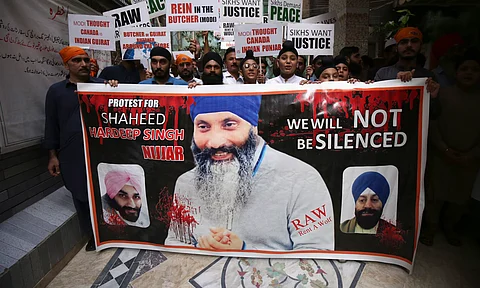

NEW DELHI: The long-running conflict in Kashmir continues to fuel tensions between India and Pakistan, with both sides employing covert operations. According to a Washington Post investigation, India's intelligence agency (RAW) has recently intensified its approach, conducting targeted assassinations inside Pakistan since 2021.
The Post reports that Kashmir-related violence has escalated since 2019, when Prime Minister Modi revoked Kashmir's semi-autonomous status. Indian Army officials disclosed that at least 50 soldiers have been killed by Pakistan-based fighters in Jammu and Kashmir, mostly in the Pir Panjal region.
One notable case involved Mohammed Riyaz Ahmed, a key militant financier who crossed the Line of Control to enter Kashmir in 1999. The Post reports he was shot while praying in a mosque in Pakistani-Administered Kashmir in September 2023. His group, the Resistance Front, retaliated by killing three Indian army officers, including a colonel, and a policeman in Anantnag.
The Post mentions several other Kashmir-linked targets including Syed Khalid Raza, former militant leader active in Kashmir in the 1990s, who was killed in February 2023 in Pakistan and Shahid Latif, accused of raiding an Indian Air Force station in 2016, an operation that damaged India-Pakistan diplomatic relations.
The newspaper notes that instead of large-scale military confrontation, both nuclear-armed nations have opted for covert operations. India's current National Security Adviser, Ajit Doval, was quoted saying India should use covert means to punish Pakistan for supporting militant groups, stating "Pakistan's vulnerability is many, many times higher than India's."
This shadow conflict represents a strategic shift in how both countries manage their Kashmir dispute, with India adopting more aggressive covert tactics while maintaining plausible deniability to avoid outright war.
According to the Washington Post's investigation, the India-Pakistan shadow war has evolved from supporting proxy militant groups to more direct targeted killings. The shift is more notable on the Indian side post-2021. Ever since, India's RAW adopted systematic assassination program.
The report states that operations use local criminals or Afghan contractors rather than Indian nationals and the funding is routed through Dubai-based intermediaries and informal banking networks.
The Post notes this shift intensified after Modi's 2019 decision to revoke Kashmir's semi-autonomous status, leading to increased militant activity in the region and subsequent Indian covert responses.
-----
Have you liked the news article?